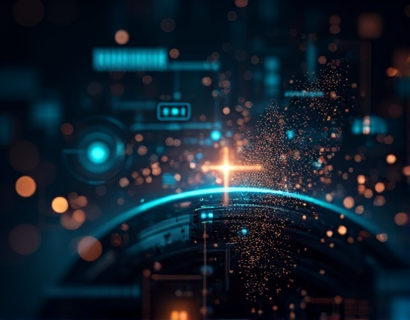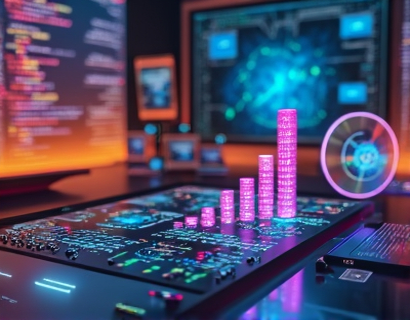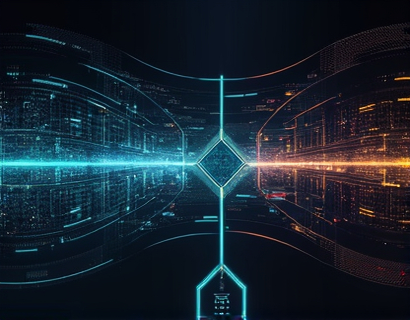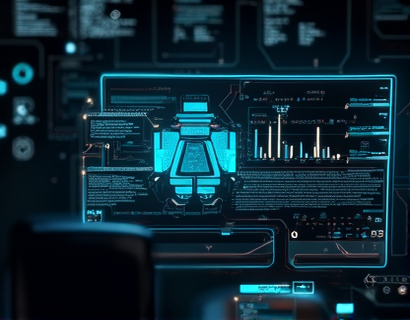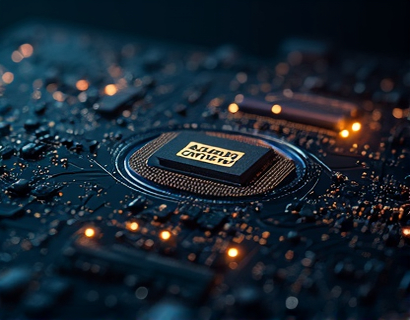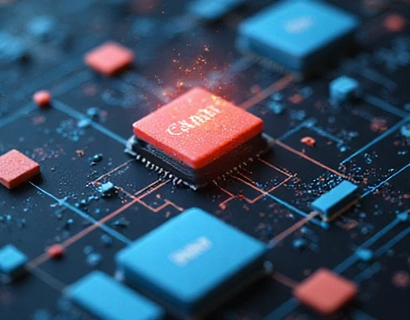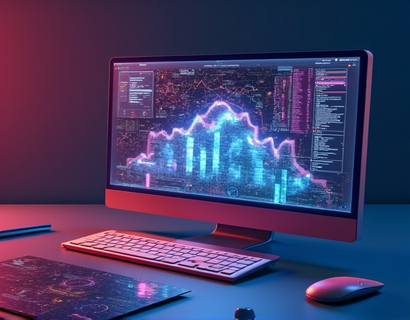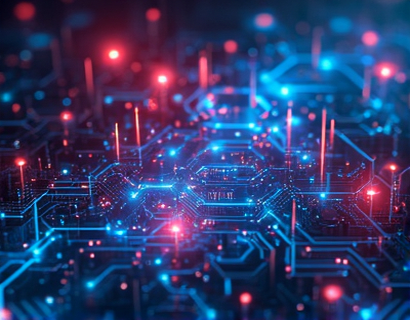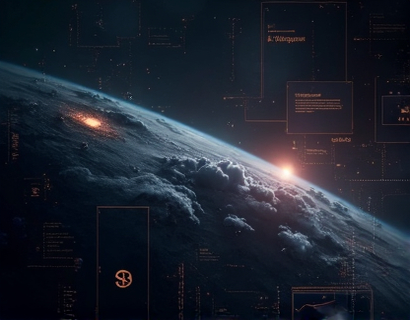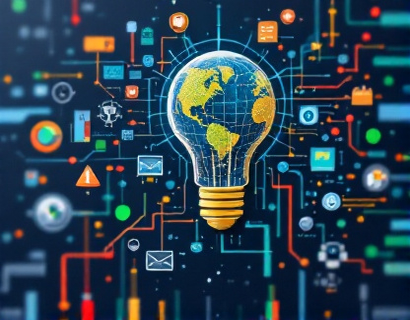Decentralized Productivity: Harnessing AI and Crypto for Next-Gen Workflow Innovation
The intersection of cryptocurrency and artificial intelligence (AI) is giving rise to a new era of productivity tools that promise to redefine how we work and collaborate. This article explores the transformative blend of these technologies, focusing on how they can be harnessed to create advanced decentralized applications that enhance efficiency, security, and innovation in digital workflows.
In recent years, the convergence of blockchain technology and AI has opened up unprecedented opportunities for developers and users alike. By combining the immutable and transparent nature of decentralized systems with the intelligent capabilities of AI, we can create workflows that are not only more efficient but also more secure and user-friendly. This synergy is particularly beneficial for professionals who are always seeking ways to optimize their productivity and stay ahead in a rapidly evolving digital landscape.
Understanding Decentralized Productivity
Decentralized productivity refers to the use of decentralized technologies, primarily blockchain, to create applications and services that operate without a central authority. These applications leverage the power of a distributed network of nodes to ensure that data is secure, transparent, and tamper-proof. When AI is integrated into these systems, the result is a powerful toolset that can automate complex tasks, analyze vast amounts of data, and provide insights that would be impossible for humans to achieve on their own.
The key advantage of decentralized productivity tools is their ability to operate independently of centralized servers, reducing the risk of single points of failure and enhancing data privacy. This decentralized approach also promotes greater collaboration, as users can share resources and data in a trustless environment, knowing that the system will enforce rules and maintain integrity without the need for intermediaries.
AI in Decentralized Systems
AI plays a crucial role in decentralized productivity by enabling smart automation and intelligent decision-making. Machine learning algorithms can be deployed on blockchain networks to process and analyze data in real-time, providing users with actionable insights and automating routine tasks. For instance, AI-powered bots can manage workflows, schedule meetings, and even handle customer inquiries, all while ensuring that the underlying data remains secure and decentralized.
One of the most exciting applications of AI in decentralized systems is the development of decentralized autonomous organizations (DAOs). DAOs use smart contracts to automate governance and decision-making processes, allowing members to participate in the management of the organization without the need for a central authority. AI can enhance DAOs by providing predictive analytics and optimizing resource allocation, ensuring that the organization runs smoothly and efficiently.
Enhancing Workflow Efficiency
Decentralized productivity tools powered by AI can significantly enhance workflow efficiency by automating repetitive tasks and providing intelligent assistance. For example, AI-driven contract management systems can automatically review and execute smart contracts based on predefined conditions, eliminating the need for manual intervention and reducing the risk of errors. This not only speeds up processes but also ensures that agreements are enforced consistently and transparently.
Another area where AI and decentralization intersect is in data management. Decentralized data storage solutions, such as InterPlanetary File System (IPFS), combined with AI-driven data analysis, can optimize how data is stored, accessed, and utilized. AI algorithms can identify patterns and insights from distributed data sources, enabling businesses to make data-driven decisions more effectively. This decentralized approach to data management also enhances security, as data is not stored in a single location and is protected by cryptographic techniques.
Security and Trust in Decentralized Workflows
Security is a paramount concern in any digital workflow, and decentralized systems offer robust solutions to enhance data integrity and privacy. Blockchain's inherent properties, such as immutability and transparency, ensure that once data is recorded, it cannot be altered without consensus from the network. This makes it an ideal foundation for building trust in decentralized productivity tools.
AI can further bolster security by detecting and mitigating threats in real-time. Machine learning models can analyze network activity to identify anomalies and potential security breaches, allowing for proactive measures to be taken. Additionally, AI can help in creating more secure cryptographic protocols and enhancing the overall resilience of decentralized systems against cyber attacks.
User Experience and Accessibility
One of the challenges with decentralized technologies has been their complexity and the steep learning curve they present to users. However, the integration of AI is helping to bridge this gap by creating more intuitive and user-friendly interfaces. AI-powered chatbots and virtual assistants can guide users through complex processes, providing personalized support and recommendations. This not only improves the user experience but also makes decentralized tools more accessible to a broader audience.
Moreover, AI can help in designing decentralized applications that are optimized for various devices and platforms, ensuring a seamless user experience across different environments. This is particularly important as more users access decentralized services through mobile devices and other edge computing platforms.
Case Studies and Real-World Applications
Several projects and platforms are already leveraging the combination of AI and decentralization to revolutionize productivity workflows. One notable example is Filecoin, a decentralized storage network that uses AI to optimize data placement and retrieval. By analyzing usage patterns and network conditions, Filecoin ensures that data is stored efficiently and accessed quickly, providing a reliable and cost-effective alternative to traditional cloud storage solutions.
Another example is the use of AI in decentralized finance (DeFi) platforms, where smart contracts and machine learning algorithms work together to automate trading, lending, and other financial activities. These platforms offer greater transparency and control to users, reducing the need for intermediaries and lowering transaction costs.
Future Prospects and Challenges
The future of decentralized productivity is promising, with ongoing advancements in both AI and blockchain technology paving the way for even more innovative applications. However, there are also challenges that need to be addressed to fully realize the potential of this fusion. Scalability remains a significant issue, as many blockchain networks struggle to handle high volumes of transactions efficiently. Research into layer 2 solutions and more efficient consensus mechanisms is crucial to overcoming this hurdle.
Interoperability between different blockchain platforms is another area that requires attention. As the ecosystem grows, the ability to seamlessly integrate and communicate between various decentralized systems will be essential for widespread adoption. AI can play a role here by developing smart middleware that facilitates interoperability and ensures smooth data exchange.
Regulatory considerations also pose challenges, as the decentralized nature of these technologies often conflicts with traditional regulatory frameworks. Striking a balance between innovation and compliance will be key to ensuring that decentralized productivity tools can thrive in a global market.
Conclusion
The integration of AI and decentralization is ushering in a new era of productivity tools that are more efficient, secure, and user-friendly. By leveraging the strengths of both technologies, we can create decentralized applications that not only enhance individual productivity but also foster collaboration and innovation on a global scale. As these technologies continue to evolve, the possibilities for transforming digital workflows are endless, offering exciting opportunities for professionals and organizations alike.



